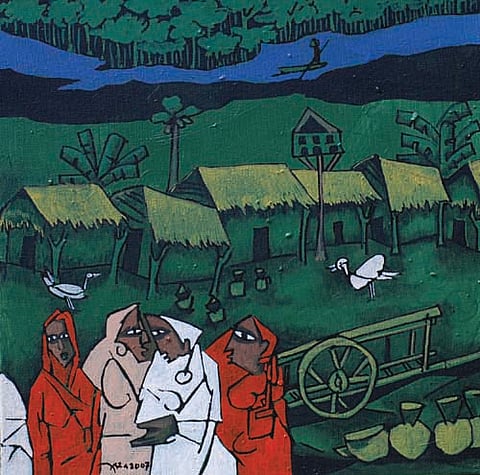Death is a terrible affair, hardly ever affording us the time to be prepared before the irrevocable finality strikes. I had known that mother was going to die; it was an undisputed truth that was accepted after her final test results were discussed by a doctor with a solemn face, an outcome of all the years of his treating terminally-ill cancer patients. But now that she has actually died, I am at a loss. Mother had wanted to be buried in the backyard of her home, a property that she inherited from her parents and which now belongs to an eco-tourism group intending to convert it into a natural resort or something. Instead, she was incinerated in a matter of minutes, inside the electric pyre of the community funeral home in town. Her burning body left very little odour, in fact very little of anything. A handful of grey dust was scooped into an earthen pot, which was secured with a red cloth, to be lapped up by the holy water of Thirunavai, whenever we visited Kerala next. Until then, it would rest in front of a lighted lamp, alongside an enlarged black and white photograph that captured her beauty at its best.
Two days later, I am attempting to peel off my veil of sorrow and to move on with life. Mother had occupied the guest bedroom of our 3-BHK flat. It still smells of kuzhampu – the thick paste that she smeared on her body every day before bath – her herbal hair oil, and clothes that have not been used for a while. Surprisingly, I cannot yet identify the chemical smell of all the allopathic medicines which were her best friends in the last few months of her life. She seems to have taken it with her, which suits me. The room today smells as it always had, of her and things she had owned and loved.

